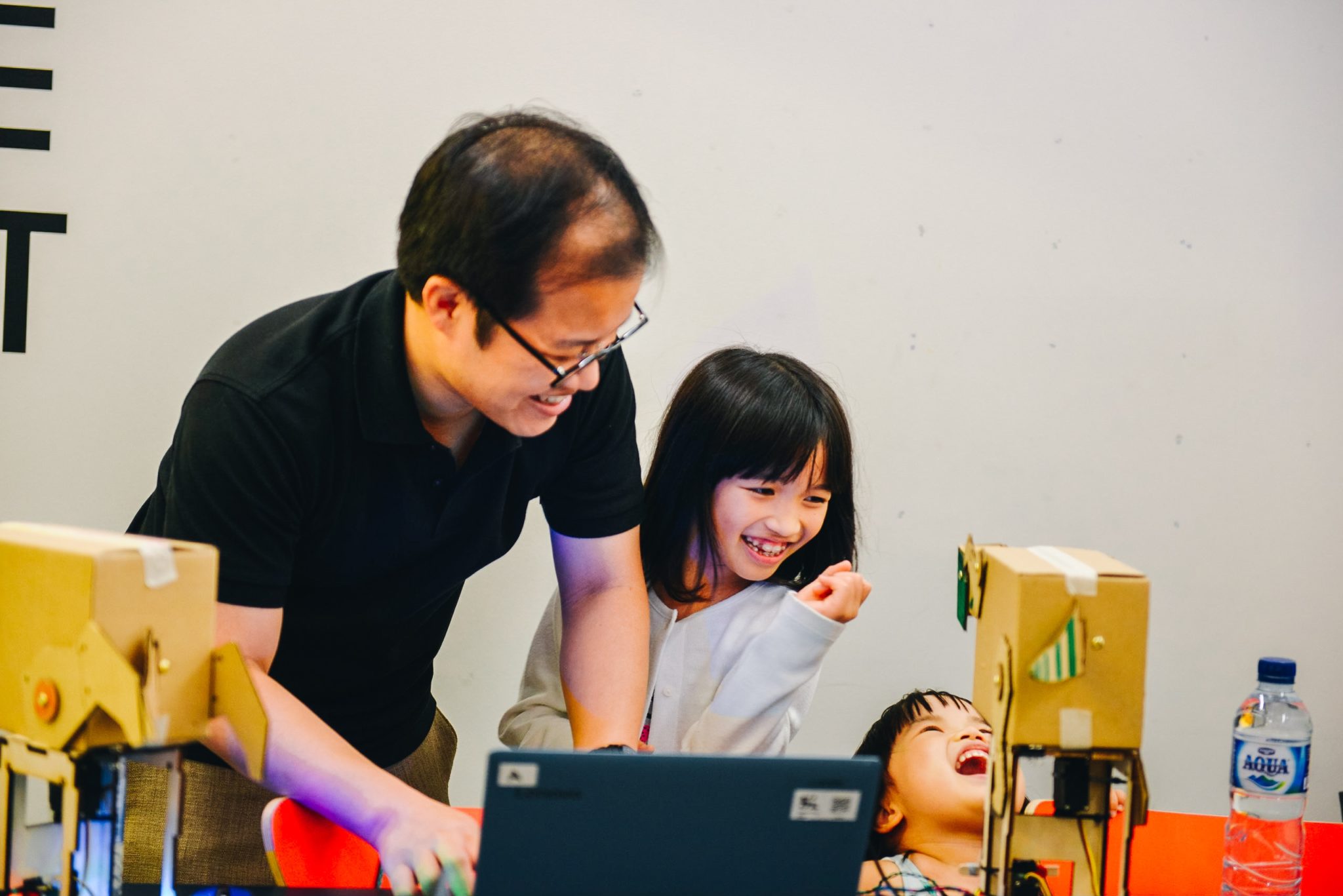What is positive psychology, and how can it help you?
March 26, 2020

We’re not gonna lie – it’s been a trying time dealing with COVID-19 and its implications on our programmes and business. But we know we’re not alone in this, and at this time, we think we could all do with a little dose of something called positive psychology. Here, big kid Victoria introduces us to the discipline of positive psychology and tells us about a few of its benefits.
What is positive psychology? And what is it not?
Positive psychology is the “scientific study of what makes life worth living”, and enables people to go beyond functioning to flourishing in their lives. Perhaps you’re familiar with the Monday blues? Well, positive psychology is about empowering us to be happier, healthier individuals. And if you’re a parent, it can also enable you to raise happier, healthier kids.
But as you build an idea of what positive psychology is, it’s also vital to know what it’s not. So let’s clear up two common misconceptions:
It’s not just about positive emotions.
It’s easy to assume that positive psychology would be, well, all about being positive. This can lead to people feeling pressured to avoid negative emotions when they actually have a rightful place in our lives.

Instead, apart from reminding us that negative emotions are essential and should be accepted, positive psychology also implores us to consider the ratio of positive to negative emotions we might be feeling, and subsequently to assess whether an over-emphasis on either is a clue to deeper underlying issues we could address.
Positive psychology doesn’t downplay difficult situations.
Can you recall a time when you had difficult emotions to deal with, and a friend or family encouraged you to look at the silver lining? This is probably one of the least helpful emotional responses, because it undermines your feelings while not helping with your situation. Positive psychology is about working with the individual to shift their mindset without overlooking the fact that you are going through something challenging.
Now that you’ve got a clearer picture of positive psychology, let’s explore how you can apply it in your daily life, and to the extreme challenge of parenting.
Here are 3 ways positive psychology can help you:
Positive psychology can improve communication and relationships.
Compassion and kindness are important tenets of positive psychology – not just towards others, but also ourselves.
By creating a safe space to accept negative emotions and situations, we are allowing ourselves and those we love to be honest about their feelings without judgment of whether these emotions are ‘good’ or ‘bad’.
In the long term, this forms a strong foundation for open conversations between family members, and keeps communication channels open.
Parents often say that their kids don’t tell them things, or that they are drifting apart. But if, as parents, we are able to provide a safe, non-judgmental safe space for our kids, they are more likely to come back to us.
It can boost resilience.
The ability to handle what life throws at you by focussing on strengths and leveraging your innate capabilities is key in positive psychology, and this helps us overcome challenges and emerge stronger than before.
In a society where we are often asked to work on our weaknesses, embracing our inner strengths – whether it’s a capacity for optimism, prudence, or creativity – can help us shift towards flourishing in our lives.
And for kids, this is an important lesson in self-belief and resourcefulness, which will take them far in life.
Positive psychology can help us manage negative emotions.
Some common and effective interventions used in positive psychology are gratitude exercises as well as meditation. It’s interesting to note that the feeling of gratitude is pretty much the only feeling we can actively choose to evoke at any given time.

When faced with grim situations, our minds tend to ruminate on the negative, leading to spirals. Positive psychology techniques can help us get a handle on these emotions before they fester. These can be tools for managing daily stressors and challenges which will be beneficial for both you and your child.
In our next post, we’ll discuss how we might use positive psychology to build healthier relationships with our strengths and weaknesses. Stay tuned, or sign up here to receive new blogposts right in your inbox!
. . .
Victoria manages Saturday Kids’ flagship social impact initiative Code in the Community – the largest programme offering free coding classes to disadvantaged kids in Singapore. A mum and ace baker, she also runs The Bright Life, where she runs parenting workshops and mindfulness programmes for children, working closely with parents to bring calm into the home.